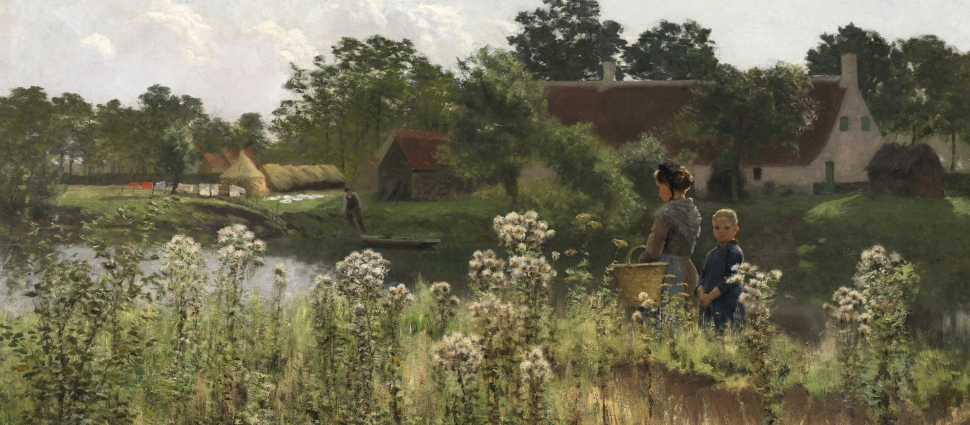The Slow Work of Sabbath Rest

Whenever I get the opportunity to speak about worship in either a Sunday School series or an Inquirers class, I try to work in the following thought from Hart and Muether's With Reverence and Awe:
“God’s intention was to bless his people through the constant and conscientious observation of the [Sabbath], week after week and year after year. Believers are sanctified through a lifetime of Sabbath observance. In other words, the Sabbath is designed to work slowly, quietly, seemingly imperceptively in reorienting believers’ appetites heavenward. It is not a quick fix, nor is it necessarily a spiritual high. It is an ‘outward and ordinary’ ordinance, part of the steady and healthy diet of the means of grace.”
In a world of quick fixes, easy steps, emotionalism, and intellectualism, Hart and Muether remind us of the slow and quiet work of the Spirit in congregational worship.
As the Westminster Shorter Catechism teaches in Q. 88:
Q. What are the outward and ordinary means whereby Christ communicates to us the benefits of redemption?
A. The outward and ordinary means whereby Christ communicates to us the benefits of redemption are, his ordinances, especially the Word, sacraments, and prayer; all which are made effectual to the elect for salvation.
This reorienting perspective becomes an antidote for spiritual thrill-seeking and an assurance that the tried and true ways are still the best. Instead of looking for spiritual highs, we can rest in the surety of God’s promises—even when we do not feel like it. In addition, we are also kept from over-intellectualizing worship as we recognize that worship is a spiritually formative process, reaching beyond our heads and engaging our hearts and affections—especially over time.
As we consider corporate, congregational worship and its elements, we must consider our posture. Will we approach it from the standpoint of submission, knowing it is for our good, or will we instead seek whatever suits our personal taste? We are willing to submit when it comes to exercise, eating, or learning a new skill. The same applies to the ongoing observance of Lord’s Day worship. It takes time to see the results of an exercise regimen, and there are various times of success and plateaus. Yet by looking back from where we have come, we see the trajectory of better fitness and health. The same is true with the discipline of worship and the trajectory of spiritual fitness and health.
Lord’s Day worship imperceptively reorients our affections towards heaven and away from earthly concerns, towards the eternal rather than those things that are passing away, to the way of the cross instead of our own comfort. To paraphrase my pastor, God did not redeem us by the blood of His Son in order for us to sit comfortably in our pew every week. The continuous shaping of the Sabbath equips, prepares, challenges, and changes us.
Have patience in the work of Sabbath observance—in your own heart and in the response of the congregation. The Spirit is at work in these outward and ordinary means.
Gregory Wilbur is the Chief Musician and liturgist at Cornerstone Presbyterian Church (PCA) in Franklin, Tennessee.
Related Links
"How Ordinary Worship Is both Reverent and Relevant" by Stephen Spinnenweber
"The Death of the Evening Service" by Mark Jones
"The Blessing of Sunday Evening Worship" by Mary Beth McGreevy
What Happens When We Worship? by Jonathan Landry Cruse
Trembling Joy: A Biblical Defense of Traditional Worship by Ryan Speck
Note: This article was originally published on The Christward Collective in February 2018.
Image: De Leie in Astene by Emile Claus




